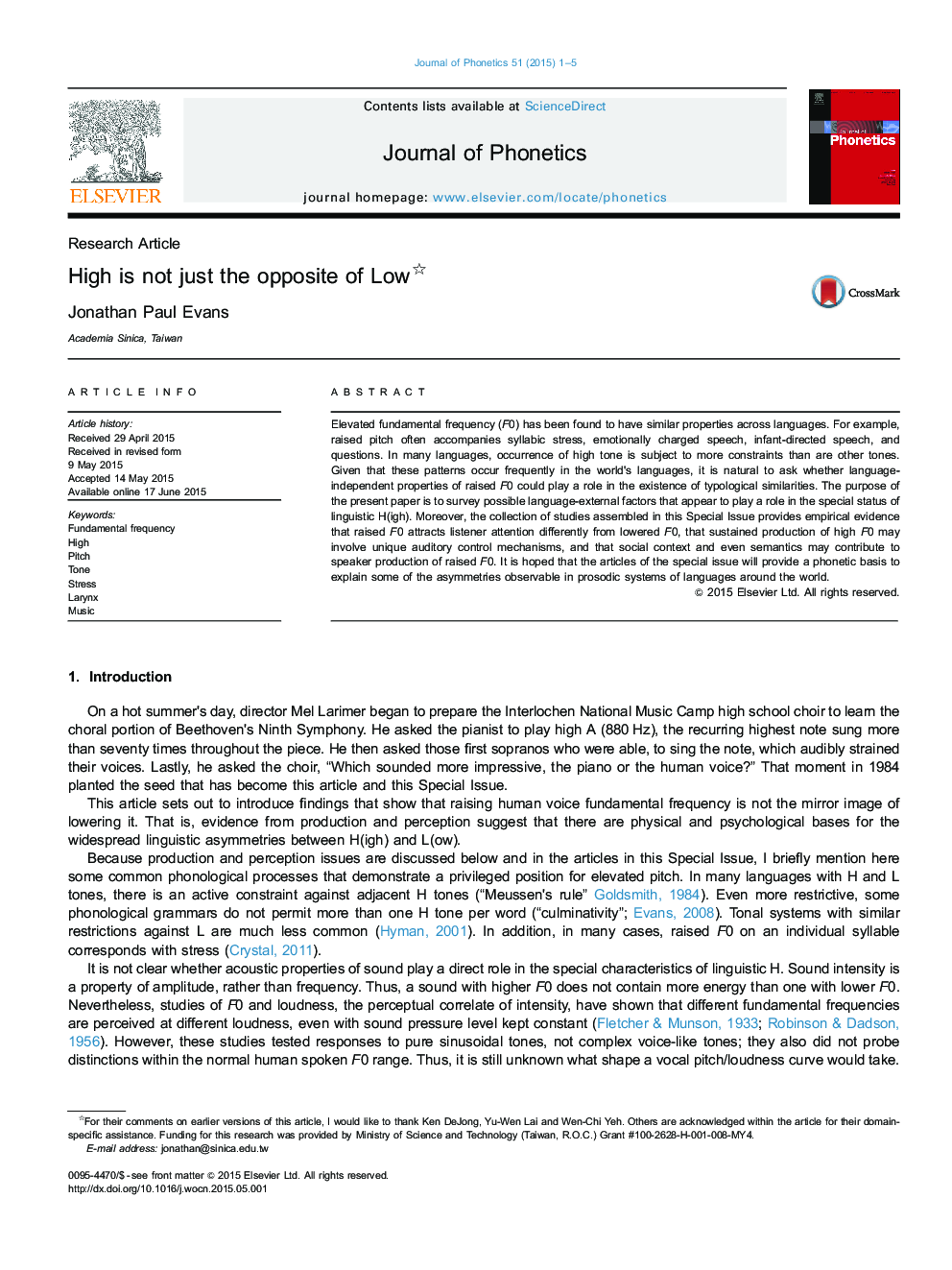| Article ID | Journal | Published Year | Pages | File Type |
|---|---|---|---|---|
| 1100668 | Journal of Phonetics | 2015 | 5 Pages |
•F0 raising affects listeners differently from F0 lowering.•Elevated F0 often corresponds to greater speaker effort.•Musical training may affect control of F0.•Phonetic properties of raised F0 could affect common phonological patterns.•The article introduces the Special Issue: What's so special about H(igh)?
Elevated fundamental frequency (F0) has been found to have similar properties across languages. For example, raised pitch often accompanies syllabic stress, emotionally charged speech, infant-directed speech, and questions. In many languages, occurrence of high tone is subject to more constraints than are other tones. Given that these patterns occur frequently in the world's languages, it is natural to ask whether language-independent properties of raised F0 could play a role in the existence of typological similarities. The purpose of the present paper is to survey possible language-external factors that appear to play a role in the special status of linguistic H(igh). Moreover, the collection of studies assembled in this Special Issue provides empirical evidence that raised F0 attracts listener attention differently from lowered F0, that sustained production of high F0 may involve unique auditory control mechanisms, and that social context and even semantics may contribute to speaker production of raised F0. It is hoped that the articles of the special issue will provide a phonetic basis to explain some of the asymmetries observable in prosodic systems of languages around the world.
